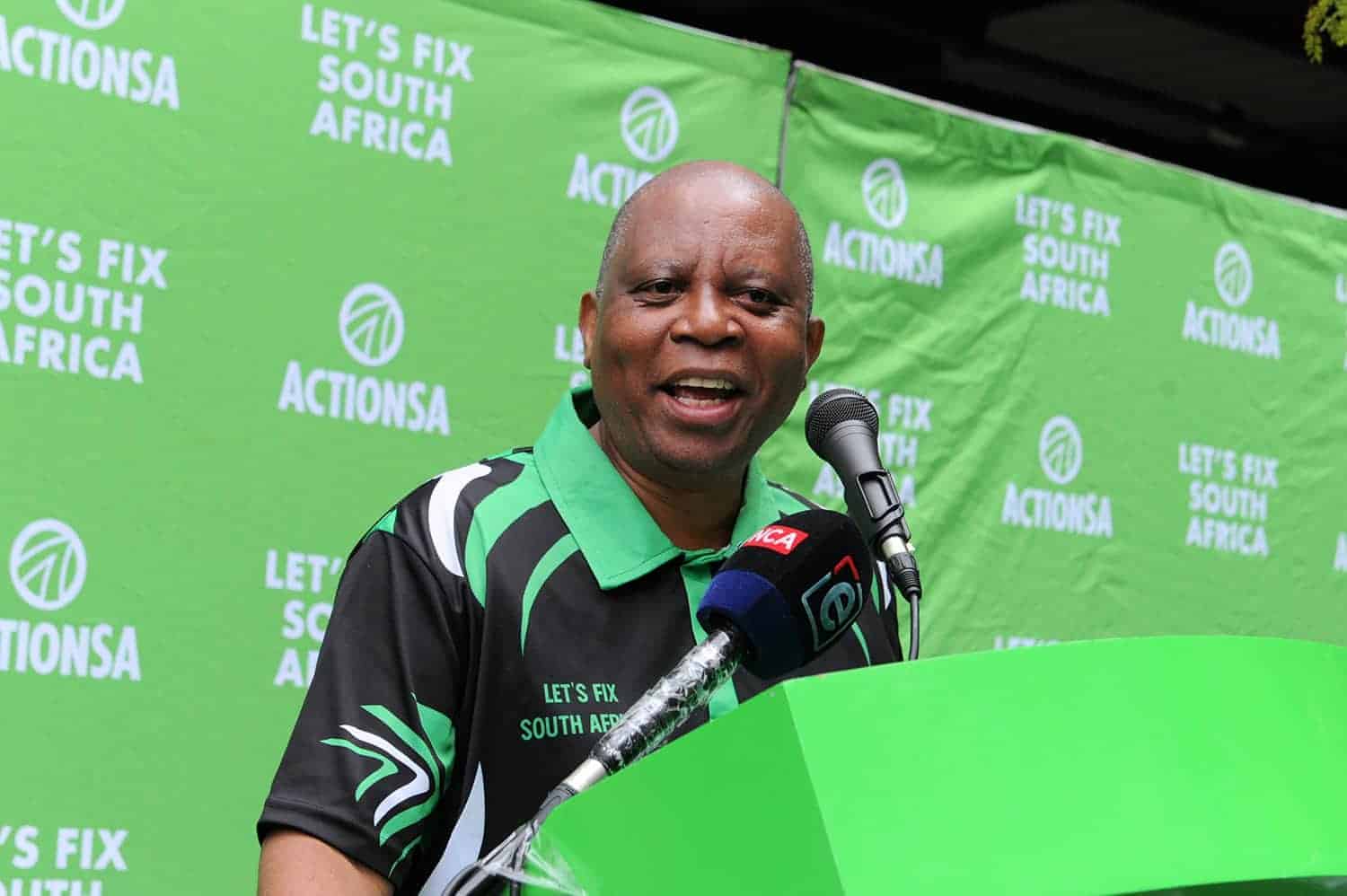Sibiya has disputed some of the allegations made by Mkhwanazi.

ActionSA president Herman Mashaba said he is willing to appear in front of parliament’s ad hoc committee investigating claims made by KwaZulu-Natal police commissioner Lieutenant-General Nhlanhla Mkhwanazi.
This comes after his name was mentioned several times during MPs’ questioning of national deputy police commissioner Lieutenant-General Shadrack Sibiya.
The MPs questioned Sibiya about his controversial tenure as the head of the City of Johannesburg’s group forensic investigation service (GFIS). During this time, Sibiya was accused of purchasing spy equipment and using it against ANC politicians.
Mashaba was the mayor of Johannesburg at the time under the DA.
“It would be an honour for me to come and testify at the commission because I have noticed my name has been dragged into this thing,” he said.
Did Mashaba have a hand in Sibiya’s appointment?
Mashaba said Sibiya was employed by the city to fight corruption related to the sale of buildings, government land and other issues related to fraud and corruption
“When we conceived the idea of starting the unit, it was done through the city manager, advertised and then people applied. Sibiya was the person that the panel recommended and immediately before he started, I had a press conference where I told the residents of Johannesburg why this unit was started.
“At the time, I was inundated with whistle-blowers bringing me cases; my focus was running the city rather than doing these investigations.
“HR was responsible for all the people who were doing the interviews.
“The only person I recommended that I wanted in my office as chief of staff was Michael Beaumont because it is a political appointment,” he said.
Mashaba said the unit uncovered R35 billion worth of corruption and fraud cases.
“This team was doing great work. At the top of my mind, I remember the case of a former MMC for housing who was selling government land and we had evidence of this,” he said.
ALSO READ: Sibiya set to be arrested? Police outside top cop’s house
‘I have never given Sibiya instructions to spy on anyone’
Mashaba denied involvement in spying on ANC councillors using equipment that Sibiya allegedly procured.
“I am not a policeman or detective to know what a policeman uses for investigations, I would never know. I have never given Sibiya instructions to spy on anyone.
“I do not think there is even such spy equipment in Johannesburg,” he said.
Mashaba told The Citizen that his relationship with Sibiya was strictly professional.
“I have never had a personal relationship, just a professional relationship with Sibiya,” he said.
Mashaba claimed political parties were using Sibiya’s employment by Johannesburg to attack his tenure as mayor.
“For me, coming to parliament to explain my involvement would be a Christmas bonus,” he said.
Sibiya on appointment and equipment
Sibiya told parliament that he was interviewed for his job at the City of Johannesburg. He also said his appointment was approved by the council, but he was not present at the time.
He also denied claims of spy equipment in the City of Johannesburg.
“There is no spy equipment that was procured,” he said.
Controversy around GFIS
The formation of GFIS is still a contentious issue in the City of Johannesburg, with some councillors wanting it to be closed.
There have been several investigations into the alleged rogue activities of this unit, but there has been no tangible evidence of spy equipment being procured.
This is not the first time that MPs in the ad hoc committee have raised other issues which are not directly related to the Political Killings Task Team (PKTT) at the centre of Mkhwanazi’s allegations.
Politicians must put party loyalty aside
Theo Neethling, a political analyst from the University of Free State, told The Citizen that while politicians are loyal to their party, they must put the interests of the country first.
“Within parliamentary committees, members have a unique opportunity – and responsibility – to rise above partisan interests. Committees are meant to serve the public by ensuring accountability, improving legislation and providing meaningful oversight.
“For these purposes, political parties should set aside their differences and focus on the national interest and constitutional principles that unite them.
“Constructive engagement, respect for opposing views and a willingness to reach consensus are essential for effective committee work,” he said.
NOW READ: How the Madlanga commission is reshaping SA’s global image






